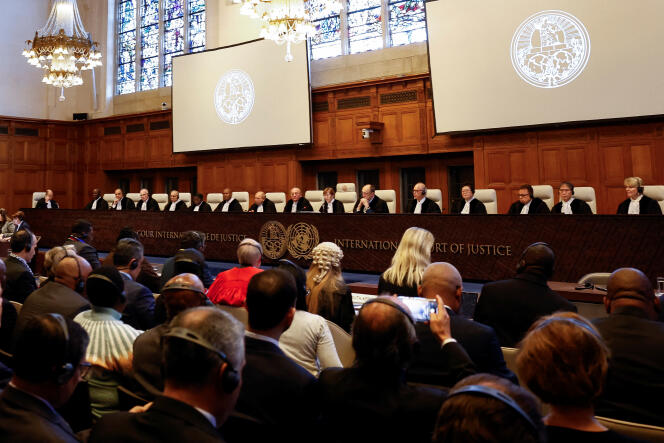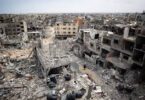South Africa again approached the International Court of Justice (ICJ) and made an urgent request to consider whether Israel’s plan to expand its military operations into Rafah requires the court to use its powers to prevent further imminent breaches of the rights of Palestinians. Presently, Rafah,a thickly populated city within Gaza enclave currently home to over 1.2 million displaced Palestinians in the territory, has come under heavy fire from Israeli air strikes and artillery shelling that cost several dozens lives in recent days.
There has been growing criticism from the global community over Israel’s plan to expand its military operation in Rafah, a safe refuge for over a million Palestinians who took shelter there since Israel launched its military offensive on October 7 last year. Several western nations including the US, the UK, the European Union, France and Germany urged Israel to avoid military incursion in Rafah on fear of an out break of the worst humanitarian crisis in Gaza. Previously, South African government filed a petition at the ICJ requesting the world’s top court to order a ceasefire and stop Israel from weiging a genocide of Palestinians. During the ruling on Peritora’s petition, the ICJ ordered six provisional measures be taken, including obligations on Israeli authorities to refrain from actions contrary to the Genocide Convention, to prevent and punish the direct and public incitement to genocide, and to take immediate action to ensure the flow of humanitarian assistance to civilians in Gaza. However, the Netanyahu regime neither upheld its obligations under the Geneva convention and Global convention on Genocide nor its honored the ruling of the International Court.
In the nevest development, the Netanyahu government ordered a military offensive against bereaved Palestinians mostly living in tent homes in Rafah pushing them into Egypt rendering the enclave uninhabited. Unprecedently, the South African authorities again reached the top court to foil Tel Aviv’s heinous action against innocent unarmed Palestinians. Although Israel ‘s military action has no moral or legal basis yet the philosophy and professionalism of the multi-origin adjudicators is uncertain, which seems to be more influenced by their country’s interest rather than the global conventions and humanitarian laws.







